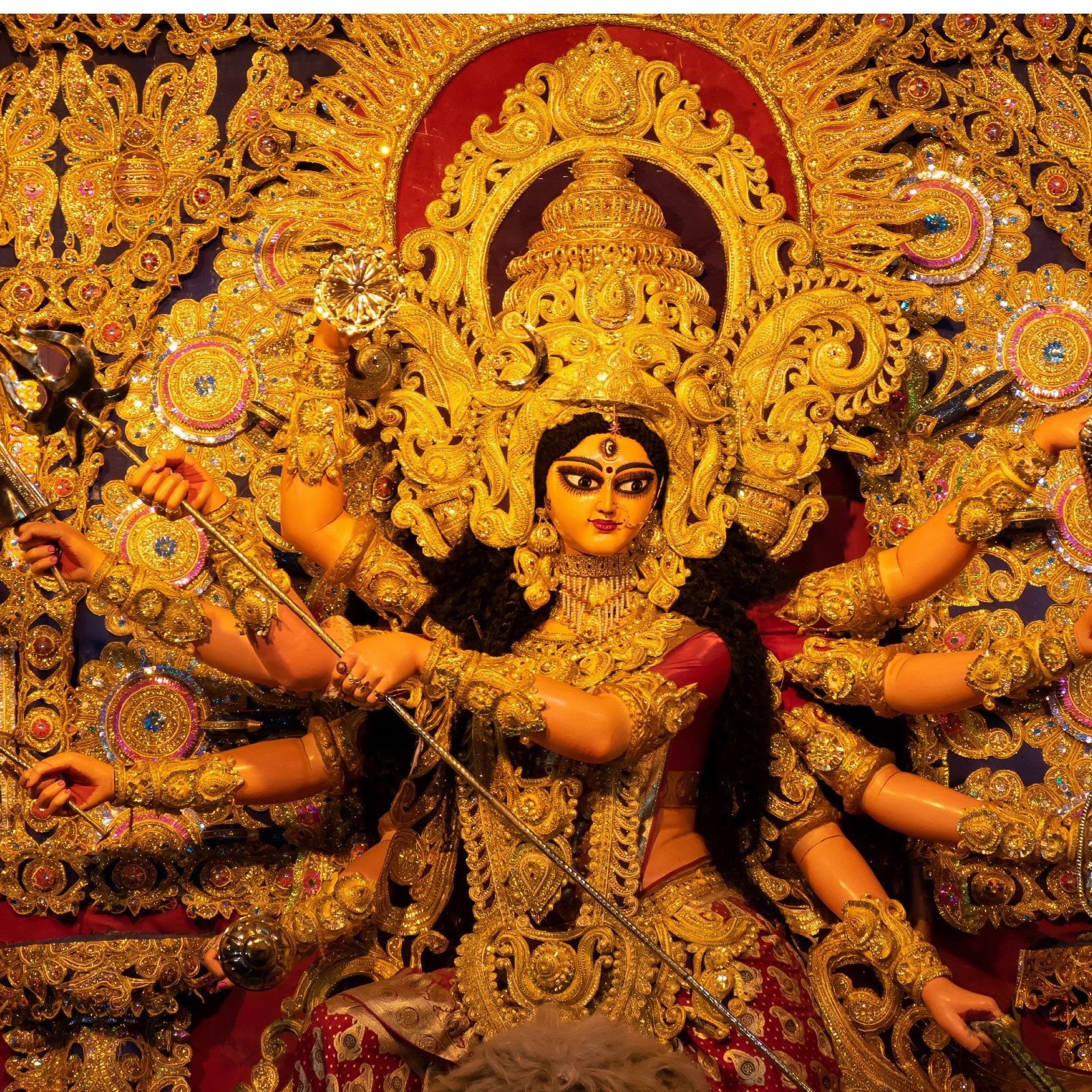NAVRATRI 2022: Durga Puja is celebrated for days varying from 6 to 10 days in different parts of the country. The festival is also celebrated as Navratri (nine nights) in most of Northern India. This year, the celebration of Navratri will begin on September 26th and end on October 4th.
Months before Durga Puja, the narrow lanes and bylanes of Kumartuli in Kolkata come alive with artisans and idol makers giving shape to the ten-armed goddess and her family with clay for the festivities. The kumars or makers of the god create the chinmayi or clay idols, which are made mrinmoyi through the ritualistic practices of the priest during the five-day festivities.
Hours of hard work and sweat create exquisite pieces of craftsmanship, with demand running high and varied for what king of an idol a family or a community wants to install inside their house or marquee.
ALSO READ: Navratri Start and End Date: Day-wise Colours, History and Significance of 9 days
For the uninititated, the clay is brought down the river Hoogly from Uluberia, a village near the city, which has clay which is ideal for shaping the idols. However, the bank of the river is not the only place from which clay is used in making the idols of Goddess Durga.
ALSO READ: When is Durga Puja 2022? Date, History and Significance of 10 Weapons of the Maa Durga
As per Hindu tradition, when the idol of Goddess Durga is prepared, four things are very important. These include mud from the banks of the Ganga, cow dung, cow urine and soil from outside brothels, known as ‘Nishiddho Pallis’, without which the idol is considered incomplete.
According to traditional beliefs, the soil should be begged and received from a sex worker’s hand as a gift and blessing since it is known as ‘punya mati’ or the sacred soil and was earlier collected by the priest. Nowadays it is collected by the person who makes the idol, months before the festivities.
ALSO READ: Navratri: Day-wise Nine Avatars of Goddess Durga
While it could be that people might have included the custom to include people who are outcasts into the folds of the autumnal festivities.

Many believe that the soil is considered to be blessed because people who visit the forbidden lanes of prostitutes leave behind their virtue and piety at the doorstep to enter the world of carnal desires and sin. The soil then imbibes all the virtues and becomes blessed.
Another school of thought, based on the studies of the vedas believes that nine classes of women known as Navkanyas are to be worshipped, revered during Durga Puja. A nati (dancer/actress), a vaishya (prostitute), rajaki (laundry girl), a brahmani (Brahmin girl), a shudra, a gopala (milkmaid): such are the women of known as Navakańyās. According to the belief the worship of the ten-armed-goddess is incomplete without paying respect to these women.
























